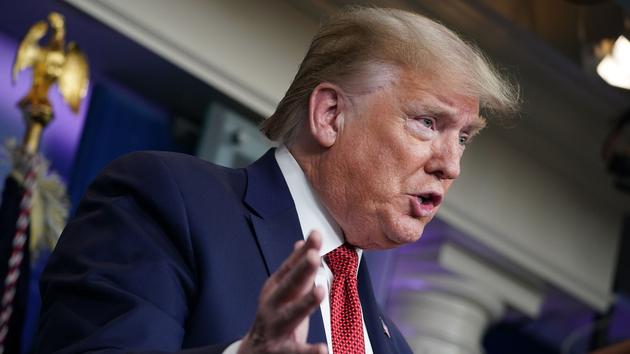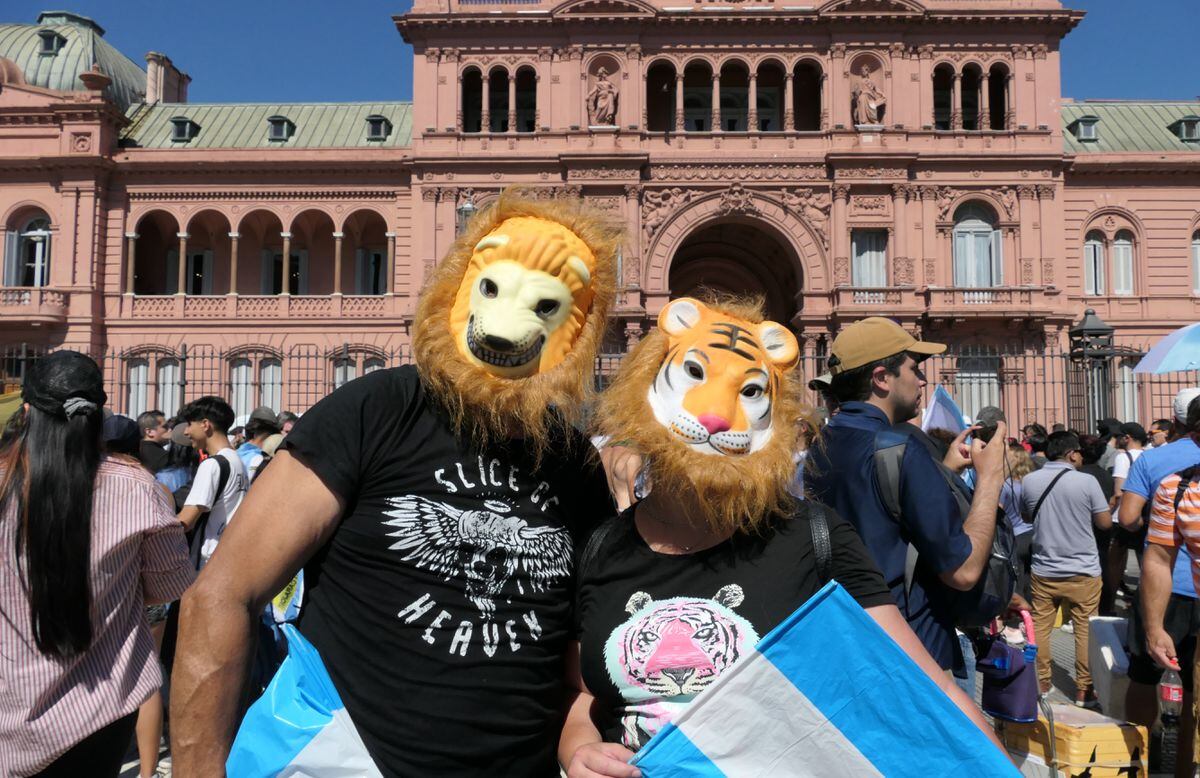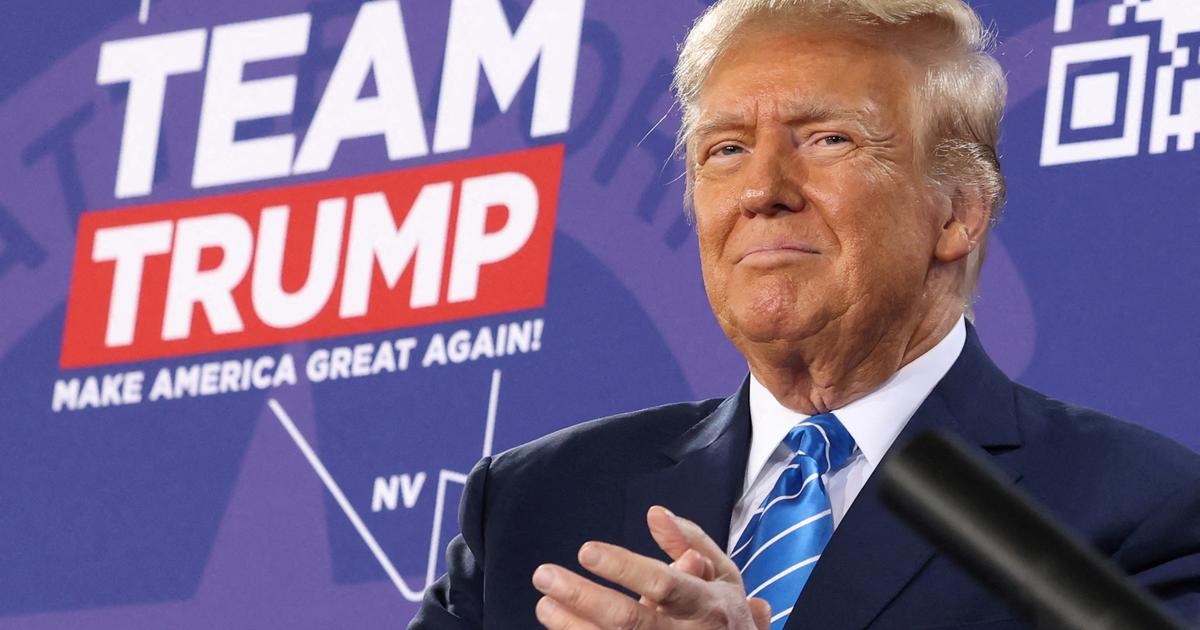Benjamin Haddad is a researcher in international relations at the think-tank The Atlantic Council. He recently published The Lost Paradise: Trump's America and the End of European Illusions (Grasset, 2019).
FIGAROVOX.- How do you explain Donald Trump's decision to suspend the American contribution to the WHO? Could it have been avoided?
Benjamin HADDAD.-Donald Trump has indeed announced this week the suspension of US public support for the World Health Organization, the branch of the United Nations responsible for coordinating the international response to health crises. The move has drawn criticism from European leaders, as well as major health philanthropists like Bill Gates, who called it "dangerous." Trump criticizes the WHO and its Director General, the Ethiopian Dr Tedros Adhanom Ghebreyesus, for its ineffectiveness and above all a complacency towards Beijing in the treatment of the Coronavirus crisis. Naturally, the American president, criticized in the United States for his late management of the pandemic, is looking for scapegoats, outside like the WHO and inside like the democratic governors of the states most affected. In addition, this decision is in line with the softwareAmerica First which guides the American president: unilateralism and nationalism, use without taboo of the economic weapon to support the pursuit of the American interests. The US budget for 2021 already anticipated a significant drop in US support for the organization.
Donald Trump brutally puts his finger on taboos and pretenses of the international order.But it would be too simple to focus on the method without questioning the substance of Trumpian criticism. As often, the latter brutally puts his finger on taboos and pretenses of the international order. WHO has not been exemplary in its crisis management. In the first weeks of the epidemic, the organization rehearsed Beijing's language without distance. Thus on January 14, in a tweet, the WHO affirmed that "there is no clear evidence of human-to-human transmission ". Dr. Tedros praised the Chinese response, offering, he said, "a new standard" in the fight against epidemics, despite the opacity and lies of the Chinese regime. Of course, international organizations must, by definition, find a balance between the interests of the states that compose them, in particular the great powers, but the proximity between Chinese propaganda and the official language of the organization deserves debate.
What will be the consequences of this decision on WHO's fight against the pandemic and on the weight of China within it?
A global crisis requires global responses, from coordination against the pandemic to the response to the economic crisis, and the weakening of multilateralism at this time is not good news. The nationalist and protectionist withdrawal after the crisis of 1929 accelerated the collapse of the already precarious international system resulting from the end of the First World War. After its questionable start, WHO took charge of the distribution of millions of medical equipments, the training of personnel and the exchange of information.
Chinese influence is a direct consequence of the American withdrawal from multilateral organizations.In addition, the American decision will only reinforce the trend that the administration denounces. The Chinese influence is a direct consequence of the American withdrawal from multilateral organizations, between the delays in the appointment of representatives and the budget cuts. Nature abhors a vacuum. When we leave the battlefield, others rush into the breach. But criticizing Trump's response is insufficient and easy without demanding reflection on the reform of the WHO and more generally of international organizations. Once the peak of the health crisis has passed, WHO's performance will have to be independently studied and conclusions drawn. Europeans can play a balancing role in promoting this reform effort.
The United States has pursued a “pivot to Asia” strategy since the coming to power of Barack Obama. Donald Trump is also regularly critical of the European Union, an organization which he mocks as impotent, and returns to the old American tradition of unilateralism. Are we heading towards an irreversible erosion of the international liberal order?
There is a risk of fragmentation of the international order. The Coronavirus crisis will accelerate pre-existing tensions and trends. And the Sino-American strategic rivalry will not escape it. It is also one of the rare subjects of bipartisan agreement in Washington. At the Munich Security Conference in February for example, the President of the House of Representatives Nancy Pelosi, Democratic opponent to Trump, responsible for the impeachment procedure against him, warned Europeans against the adoption of 5G technology of the Chinese operator Huawei, thus repeating the warnings of the Republican administration. Supporters of an economic “decoupling” with China are reinforced in the administration while some suggest the establishment of alternative international organizations made up of the United States and its allies, or their outright circumvention with arrangements ad hoc (which is already the case in the commercial field). China, with the establishment of the Silk Road or the Asian Development Bank, creates its own dependency relationships with its partners, outside of post-1945 institutions.
The option of a Sino-American decoupling is unrealistic given the interdependencies between the two countries.The real dividing line between the Biden team and Trump will be the role of the allies that a Democratic president will want to rehabilitate. The Trump administration has pursued a unilateral line in its relationship with Beijing, withdrawing from the Trans-Pacific trade agreement and ignoring any form of cooperation with the EU, at the WTO for example. The main objective of the American president was to rebalance the figures of the trade balance in the bilateral relationship with Beijing, far from the establishment of an international architecture aimed at containing Beijing. A Democratic president will probably have a more global approach, aiming to meet with Europeans the technological, commercial and military challenges posed by the assertion of Chinese power.
The option of a Sino-American decoupling is unrealistic in view of the interdependencies between the two countries, but the coronavirus will reinforce the calls, on the left and on the right, for a reflux of globalization, already fueled by the effects of the deindustrialization of the Rust Belt in the northern United States and the need to fight climate change. In addition, in Europe as in the United States, we must expect a broader definition of sovereignty and national security which will influence food security, medical supplies, scientific research, digital, the repatriation of certain production chains. Reconciling this desire for sovereignty with the requirement of global cooperation will be an arduous task for leaders in the aftermath of the crisis.









